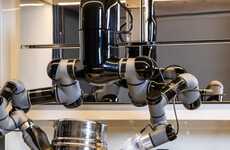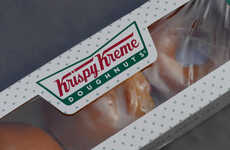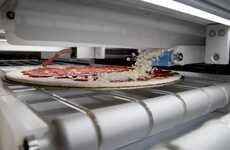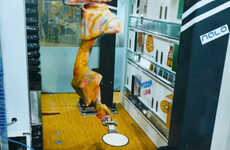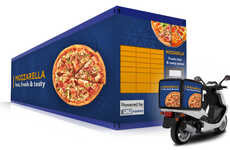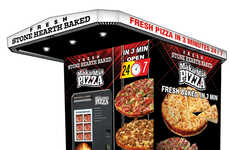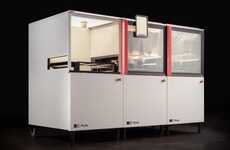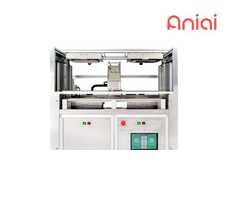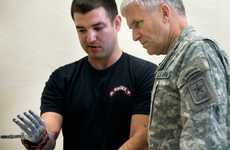
MIT's Mario Bollini Programmed the PR2 Robot to Make Cookies
Brandon Ostrom — June 13, 2011 — Unique
References: web.mit.edu & io9
Find yourself buried in your own sizable income, but lacking in skill or time to bake? Then this cookie-baking robot might just be for you. Developed by MIT graduate Mario Bollini using Willow Garage's Personal Robot 2 platform (or PR2 for short), this bizarre yet enticing project is currently entering its seventh month of development.
In reviewing its demonstration video, it is clear that Mario Bollini and the rest of his development team still have a few roadblocks a head of them, but he assures us that it should be ready for full-time work as a cookie-baking robot within the month. Current programming challenges include mess-free mixing and working with a technique called "hierarchical planning" to assist it in ensuring its workspace remains clean and ready for use at the outset of each baking session, making it on par with nearly every human worker in the food service industry. No word on whether the robot will prefer unionized bakeries or instead vie for subverting its softer, flesh-based coworkers to thereafter serve as their domineering robot overlord.
In reviewing its demonstration video, it is clear that Mario Bollini and the rest of his development team still have a few roadblocks a head of them, but he assures us that it should be ready for full-time work as a cookie-baking robot within the month. Current programming challenges include mess-free mixing and working with a technique called "hierarchical planning" to assist it in ensuring its workspace remains clean and ready for use at the outset of each baking session, making it on par with nearly every human worker in the food service industry. No word on whether the robot will prefer unionized bakeries or instead vie for subverting its softer, flesh-based coworkers to thereafter serve as their domineering robot overlord.
Trend Themes
1. Automated Baking - Developing cookie-baking robots that can handle the entire baking process, from mixing to baking, to provide convenience and efficiency for consumers.
2. Robotic Food Service - Exploring the use of robots in the food service industry to improve productivity, consistency, and cleanliness in food preparation.
3. AI-assisted Culinary Skills - Using artificial intelligence to assist robots in acquiring and applying culinary skills, enabling them to perform complex tasks like mixing and planning.
Industry Implications
1. Robotic Technology - Further developing and refining robotic technology to create more advanced and capable baking robots for commercial and household use.
2. Food Service - Integrating robotic systems into food service operations to automate tasks, improve efficiency, and maintain cleanliness standards in commercial kitchens and bakeries.
3. Artificial Intelligence - Leveraging artificial intelligence to enhance robotic culinary skills and enable robots to adapt to different recipes and baking techniques.
0.6
Score
Popularity
Activity
Freshness

